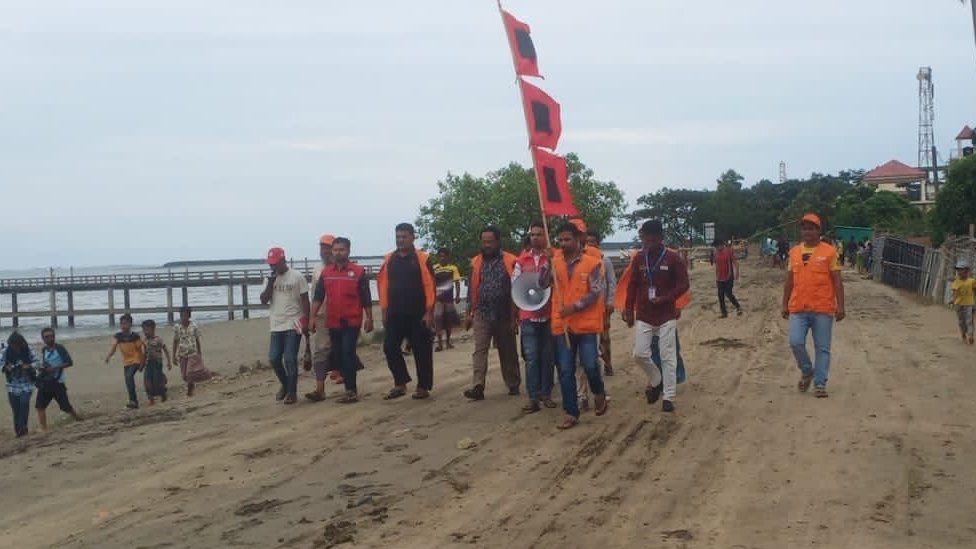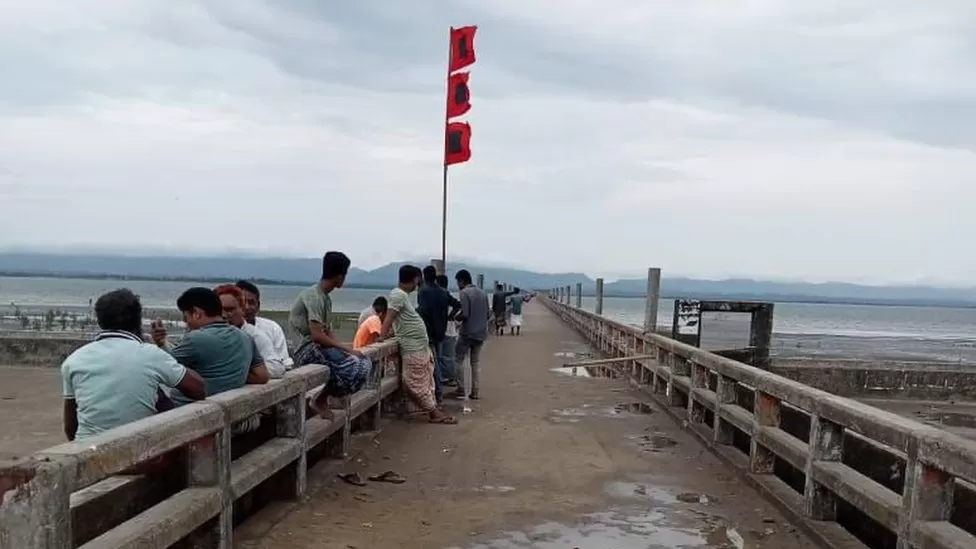A cyclone that could be very dangerous is forcing about 500,000 people to flee to safer locations in south-east Bangladesh.
Cyclone Mocha is predicted to make landfall on Sunday, with 170kph winds and storm surges of up to 12 feet.
There are concerns the cyclone could impact the world’s largest refugee camp, Cox’s Bazar, where close to a million people live in makeshift homes.
Rains are already falling on the camp and red warning flags have been raised.
Cyclone Mocha could be the most powerful cyclone seen in Bangladesh in nearly two decades.
As the weather system heads towards the Bangladesh-Myanmar coast, nearby airports have been shut, fishermen have been told to suspend their work, and 1,500 shelters have been set up, as the process of moving people from vulnerable areas begins.
Officials in Cox’s Bazar said 1,000 people had already been evacuated from one area, with plans to move a further 8,000 people from a ward near the beach if the situation worsens.
“We are ready to face any hazards… we don’t want to lose a single life,” Vibhushan Kanti Das, additional deputy commissioner at Cox’s Bazar told the BBC.
Tourists staying in beach side hotels will be safe, so emergency workers will move locals like fishermen and families who live in more vulnerable homes, the official said.

Close to a million Rohingya refugees who have fled neighbouring Myanmar remain at risk, living in flimsy bamboo shelters with tarpaulin covers. The UN says it’s doing what it can to protect these areas.
Bangladesh’s government doesn’t allow refugees to leave their camps, so many say they’re frightened and unsure of what will happen if their shelters are hit by the storm.
Forecasters expect the cyclone to bring a deluge of rain, which can trigger landslides – a serious danger for those who reside in hillside camps, where landslips are a regular phenomenon.
MD Shamsul Douza, from the Bangladeshi government office which oversees the refugees and the camps, told the BBC that they were working with NGOs to ensure the camps were as prepared as possible for the cyclone.
But he said moving refugees out of the camps was not an easy task.
“Moving a million refugees is very difficult, the implementation of the movement is difficult. We have to be practical,” the official said.
“Our plan is to save lives. We are also focused on the days after. There may be heavy rains leading to flash floods and landslides, which would also pose a risk.”
In Myanmar- the rain started on Friday night in Sittwe City, the capital of Rakhine state. The streets emptied out as people took shelter, with many seeking to find safety in cyclone shelters on high ground.
There are almost no lifejackets to be found, and the remaining stock is being sold at a higher price. Gas stations also closed on Saturday, making it difficult for people to drive out of the city.

